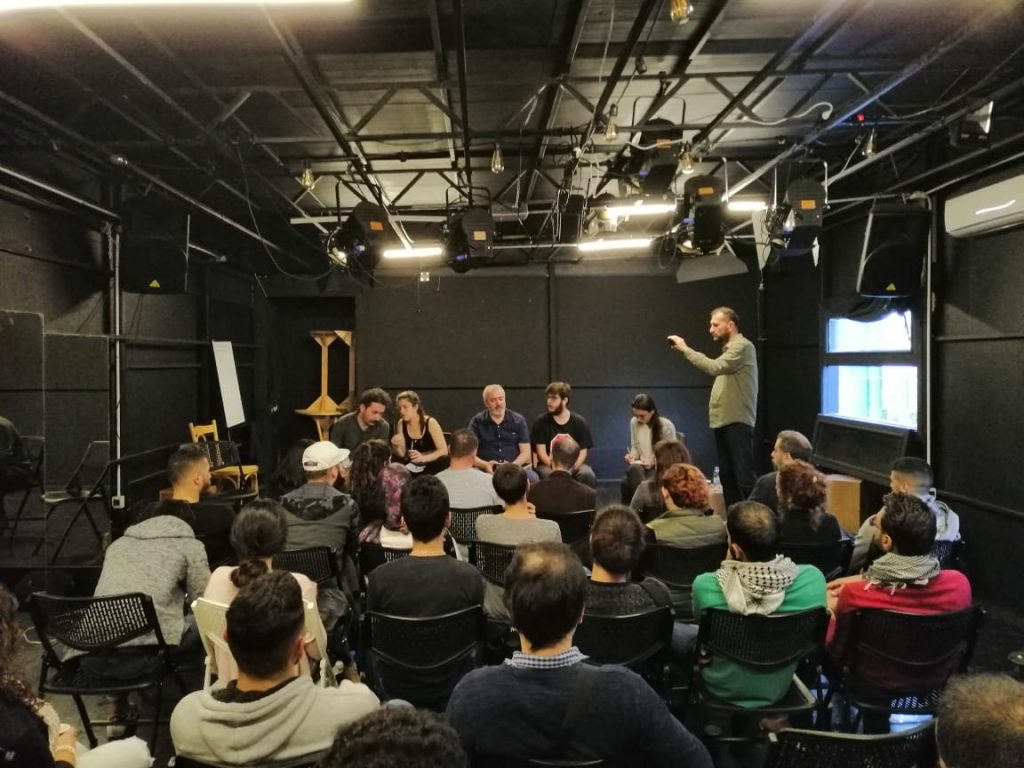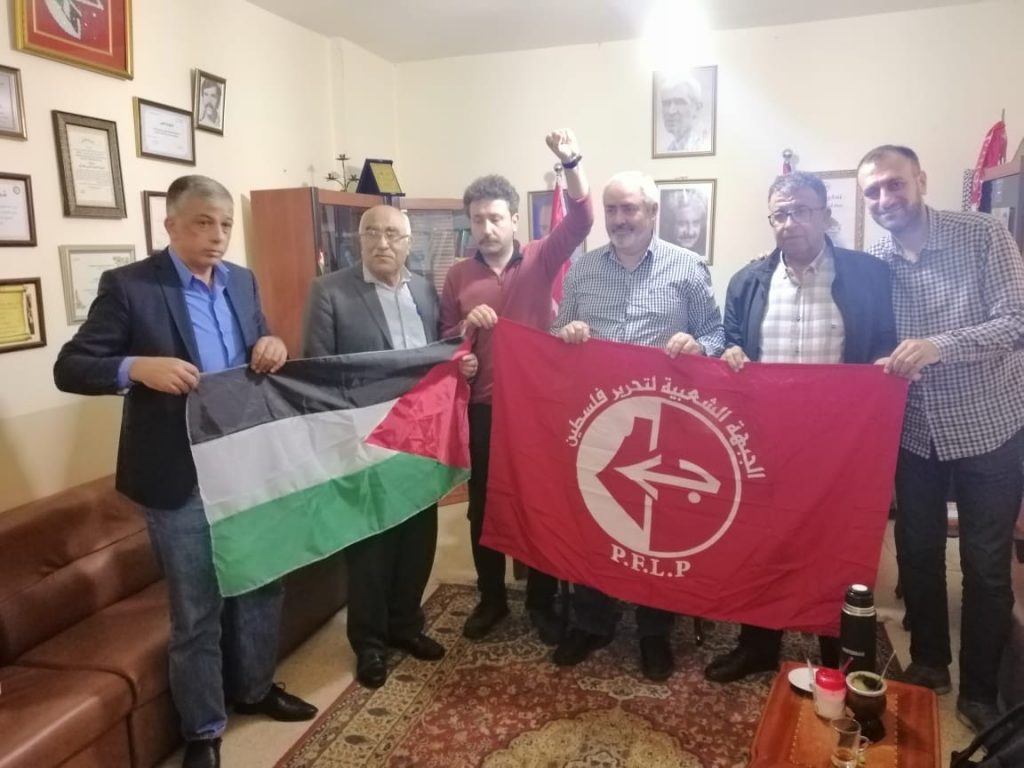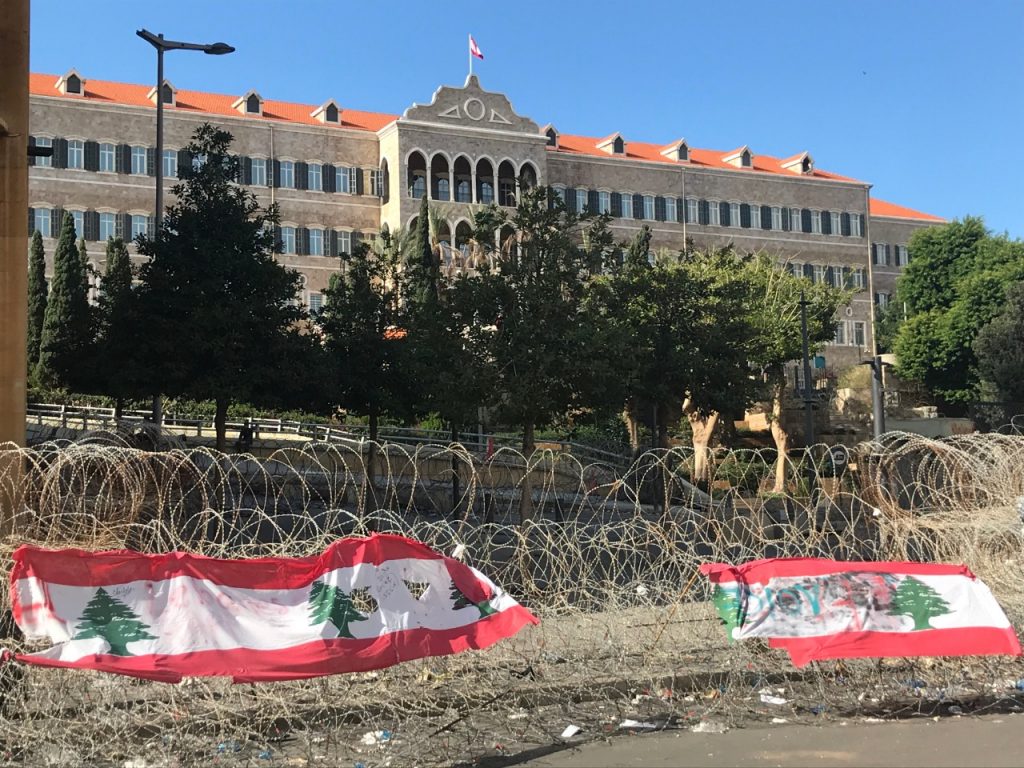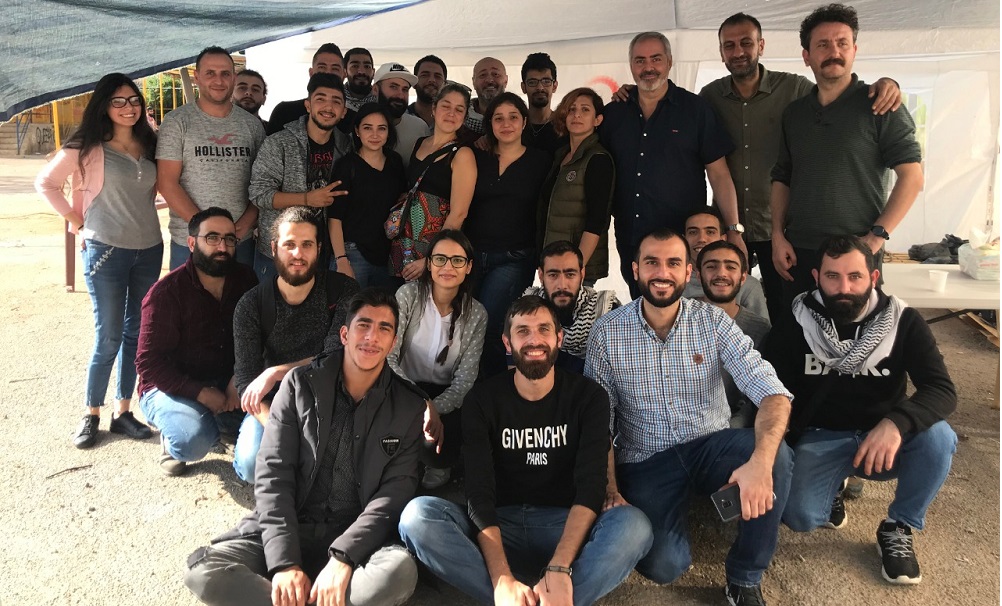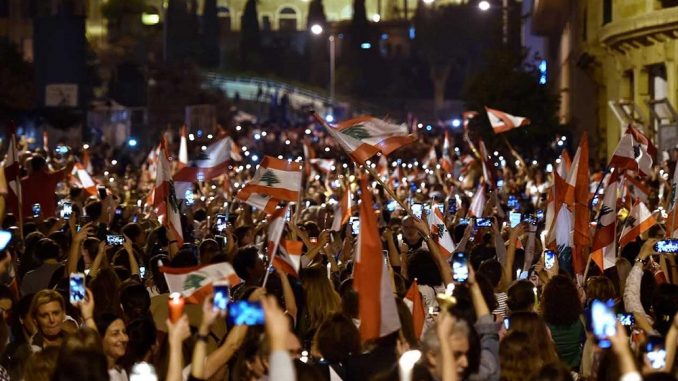
By Alejandro Bodart
This Saturday, December 14, the streets of Beirut once again witnessed harsh confrontations between the population and repressive forces. The possible reinstatement of dismissed Prime Minister Saad Hariri provoked popular rage and one of the most important mobilizations since the beginning of the October 17 rebellion.
A few days ago I returned from Lebanon, where I participated in various activities organized by the Movement for Change, a young revolutionary left organization that has decided to join the International Socialist League.
The Lebanese revolution is part of the revolutionary ascent that crosses the Middle East and North Africa. It began on October 17. The final straw that unleashed the revolt was a tax on WhatsApp messages that the government applied. Since then, and despite the government´s retreat on this and other measures against the people, the mobilization has not stopped. The government headquarters and Parliament remain surrounded by camps built by numerous social and political organizations. Part of the paralyzed banking system and state and educational institutions have been closed since the beginning of the social uprising. On October 29, the people´s fury forced Saad Hariri, one of the richest people in the country, to resign. Now the parties of the ruling coalition are trying to reinstate him.
Everyone must go!
The current Lebanese political regime arose from the National Reconciliation Agreement that was signed in Taef, Saudi Arabia, at the end of the civil war that destroyed the country between 1975 and 1990. The Constitution is confessional and states that the president corresponds to Christians Maronites, the Prime Minister to Sunni Muslims and the speaker of Parliament to Shiite Muslims. The National Parliament is made up of 64 deputies elected from among the different Christian sects and another 64 by the different Muslim sects. Currently the governing coalition is made up of six parties, including Hezbollah, which share not only political power but also businesses and control of the economy.
The Lebanese people have risen against this regime and the parties that sustain it. For the first time in decades, popular mobilization has surpassed the religious divisions promoted from above and has been directed against all the sectors that have governed the last 30 years, who are responsible for the social and economic disaster in which the country finds itself.
A country on the verge of collapse
With no public transportation, insufficient electricity and drinking water, a dire education and health care system, inaccessible housing and incredible pollution, Lebanon is a tremendously unequal country: while the majority of the population lives in misery, the banks and businesses linked to the government parties have been outrageously enriched. With a population of 4 million, in addition to almost 2 million Syrian and Palestinian refugees, in a territory of 10,000 km2, the external debt amounts to 86,000 million dollars, which is equivalent to a GDP and a half. In order to pay it, brutal austerity measures have been applied, with unpayable taxes and bank restrictions that limit the population´s access to their wages and savings: a corralito. The Lebanese people have risen against this unsustainable situation and obscene corruption.
The youth at the forefront
As in other rebellions that shake the planet, young people of 18 to 20 years old constitute the most radicalized sector that has been supporting the mobilization for two months. They have nothing to lose because the system has taken away all possibility of a future and, on the other hand, have everything to gain if they conquer the rights for which they are fighting.
After the civil war, the capitalist reconstruction of the country included a systematic attack on unions. Currently, workers participate in the revolt independently and a very important and combative union of professionals has emerged – similar to what happened in Sudan – which brings together teachers, doctors and other professions.
Democratic demands to put an end to the current confessional regime and be able to freely choose representatives are combined with the need to nationalize banks and not pay the debt with the people´s hunger, to be able to allocate existing resources to rebuilding the country’s infrastructure and public services, necessary to guarantee decent work, health care, quality public education and access to housing. The Lebanese flag, in opposition to the historical interference of imperialism and Israel in the region, has become a symbol of the revolution.
Hezbollah
One of the strongest and most prestigious political currents that has lead the national fight against Israel and US imperialism in the past is Hezbollah, or God’s Party. This Lebanese Shiite Islamic organization was founded in 1982 in the heat of the resistance to Israel´s intervention. Its leader Hasan Nasrallah is related religiously and politically to Iran. Although it still has a lot of influence in the Shiite regions, its prestige is now questioned because it leads the resistance against the popular rebellion, organizing actions with its militants against the camps that surround government headquarters and developing a campaign of slander against the mobilization, accusing it of being organized by imperialist powers and permanently threatening with the return of civil war. However, though Hezbollah still has influence, one of the changes that is taking place in Lebanon is that the mobilization, mainly of youth, has not stopped, even in Shiite areas.
Movement for Change
We met this organization´s comrades earlier this year and the relationship has advanced since the October uprising. The organization is composed mostly of workers and young students. It emerged in the huge demonstrations of 2015 against the government´s failure to process waste. It is composed of several cadres that broke with the Lebanese Communist Party due to its sharp turn right, and others who come from the social movement. They are currently the most important and prestigious Marxist organization on the left in lieu of their outstanding performance during these two months of mobilization. They have an important development in the university youth and a large part of its members are structured in the workplace.
I had the pleasure of participating in the rallies that they lead in Beirut in front of government headquarters, in activities they hold in their camp there, in a conference they organized for us to develop the ISL´s proposals, and I visited the Palestinian camps and other cities with them.
They are part of a new generation that has turned left and reached revolutionary and internationalist conclusions in the heat of a process that has radically changed the political situation of the entire region. They have an extraordinary opportunity before them to quickly become a reference with influence in sectors of the masses, among whom they have gained prestige as the most dedicated in the struggle for nationalizing the banking system.
Their incorporation to the ISL represents a qualitative step forward for our organization. It confirms the enormous possibilities that begin to develop internationally and allow us to begin designing plans to extend our work to the rest of the Arab countries that are now in a revolutionary upsurge.









